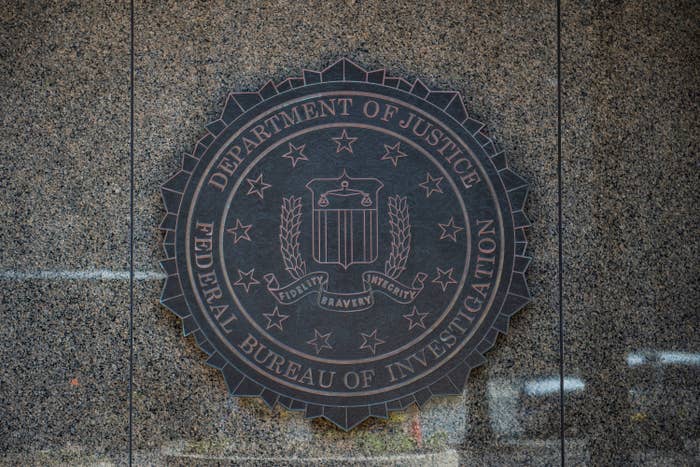
Citing the global outbreak of the coronavirus, the FBI has placed a significant limit on how Americans can learn about the workings of their government: Instead of simply using email, people who seek public records, such as documents on high profile federal investigations or files on public figures, must now put their requests on paper and send them via snail mail.
A message posted on the FBI's Freedom of Information Act website Tuesday says:
"Due to the emerging COVID-19 situation, the FBI is not accepting electronic Freedom of Information/Privacy Act requests or sending out electronic responses through the eFOIPA portal at this time. You may still submit a FOIPA request via standard mail. We apologize for this inconvenience and appreciate your understanding."

It did not explain why, at a time when Americans are being encouraged to stay home and to avoid physical contact, posted letters were preferable to email.
The Freedom of Information Act, or FOIA, is a powerful tool that allows the global public to obtain government documents. The FBI’s new protocol, which was announced during Sunshine Week, an annual celebration of transparency and open government, appears to contradict the Code of Federal Regulations related to FOIA requests across the federal government. It states, "All components have the capability to receive requests electronically either through email or a web portal" and "In general, Components should, to the extent practicable, communicate with requesters having access to the Internet using electronic means, such as email or web portal."
There’s a lot we still don’t know about the coronavirus outbreak. Our newsletter, Outbreak Today, will do its best to put everything we do know in one place — you can sign up here. Do you have questions you want answered? You can always get in touch. And if you're someone who is seeing the impact of this firsthand, we’d also love to hear from you (you can reach out to us via one of our tip line channels).
On Tuesday, the journalist Emma Best, who the FBI has labeled a "vexatious" FOIA requester, filed dozens of requests with multiple government agencies, including the FBI, to find out how the coronavirus pandemic has impacted the agencies' FOIA operations. Only the National Archives and Records Administration responded, stating it has a single one-page document that is relevant to their request — and that it is withholding that document in full.
Katie Townsend, the legal director for the Reporters Committee for the Freedom of the Press, told BuzzFeed News that in a FOIA case she is litigating, an assistant US attorney filed court papers Tuesday saying the office that handles the FBI's FOIA requests is "closed at least until March 30, 2020 because of the current coronavirus outbreak."

Matt Topic, an attorney who represents BuzzFeed News in numerous FOIA lawsuits against the FBI and other government agencies, said he received similar notification via email from a Justice Department attorney regarding a case he is litigating for another client.
"The bad news is that the rapidly evolving COVID-19 situation is forcing FBI to drastically reduce its FOIA processing because it cannot do the work remotely, due to the system’s security constraints," the government attorney wrote. "The FOIA processors need to be on-site to do the work, but they are too closely positioned to be able to conform to the new social distancing guidance. FBI is working on a response, but it is not clear when it will have one. And the production scheduled for the end of this month is now on hold, along with productions in many other cases."
Townsend called the FBI's position "absurd."
"Government agencies can and should take reasonable measures to address the COVID-19 pandemic, but there is nothing reasonable about this," Townsend told BuzzFeed News. "Agencies should be encouraging — not prohibiting — members of the public to submit FOIA requests electronically. Especially at times like this, government transparency is essential to public trust, and agencies should be working to provide timely public access to records and information through FOIA, not throwing up unnecessary roadblocks for requesters."
Reached late Tuesday night, an FBI spokesperson declined to comment about the new FOIA procedures. In a statement, the FBI said, "In support of our mission, we are enacting measures to protect the FBI workforce, including heightened hygiene practices, social distancing options, like telework and flexible work schedules where appropriate and authorizing only essential operational travel until further notice."
Separately Tuesday, the Washington, DC, city council unanimously approved the COVID19 Response Emergency Amendment Act of 2020. It contains a provision authorizing DC government agencies to delay responding to records requests during the coronavirus pandemic.
